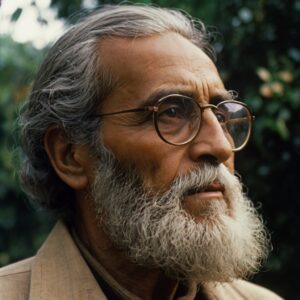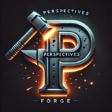At Perspectives Forge, we believe that education is more than just a means to acquire knowledge; it’s a powerful tool for social change and empowerment. Paulo Freire, a Brazilian educator and philosopher, embodies this vision with his revolutionary ideas that have transformed educational practices around the globe. As the father of critical pedagogy, Freire challenged traditional educational models that favored oppression over liberation, advocating for a more participatory and reflective approach to learning. His groundbreaking book, “Pedagogy of the Oppressed,” sparked a movement that continues to inspire educators, activists, and learners to this day. Join us as we explore Freire’s impactful contributions to education and discover how his legacy can empower us to forge new pathways toward a more equitable and just society.

A Paradigm Shift in Education
Born in 1921 in Recife, Brazil, Paulo Freire grew up in a society marked by stark economic disparities and social injustices. His early experiences with poverty and inequality shaped his understanding of education as a means of liberation rather than mere conformity. Freire’s work was rooted in the belief that education should foster critical consciousness—an awareness of one’s social reality that encourages individuals to challenge oppressive systems and work towards social justice.
Freire’s educational philosophy emerged in the context of Brazil’s oppressive political climate, where many people were denied basic literacy and education. He recognized that traditional teaching methods often perpetuated social inequalities, leaving marginalized individuals powerless and voiceless. In response, Freire proposed a radical reimagining of education, one that prioritizes dialogue, reflection, and action over passive learning.
Key Contributions to Education
Paulo Freire’s revolutionary ideas about education are encapsulated in several key principles that have had a lasting impact on teaching and learning:
Dialogical Education: Freire believed that education should be a collaborative process involving dialogue between educators and learners. He argued that knowledge is co-created through conversation and critical reflection, challenging the traditional “banking model” of education, where students are seen as passive recipients of information.
Critical Consciousness: Central to Freire’s philosophy is the concept of “conscientização,” or critical consciousness. He encouraged learners to become aware of their social, political, and economic realities and to recognize the systemic forces that contribute to their oppression. This awareness empowers individuals to take action and advocate for change.
Problem-Posing Education: Freire proposed a problem-posing approach to education, where learners engage with real-world issues and challenges. This method encourages students to question their environment, analyze problems critically, and work collaboratively to find solutions. By framing education as a process of inquiry, Freire sought to create active and engaged learners.
Cultural Relevance: Freire emphasized the importance of cultural context in education. He believed that curricula should be relevant to the lives and experiences of learners, recognizing the value of their cultural backgrounds and identities. This approach fosters a sense of belonging and validates the diverse perspectives that students bring to the classroom.
Social Justice and Empowerment: At the core of Freire’s educational philosophy is a commitment to social justice. He viewed education as a tool for empowerment, enabling individuals to challenge oppressive structures and advocate for their rights. Freire’s work has inspired countless movements for social change, emphasizing that education should serve as a means to promote equity and justice in society.
The Impact of Freire’s Reforms
Paulo Freire’s contributions to education have profoundly influenced teaching methods and pedagogical practices around the world. His ideas laid the groundwork for the critical pedagogy movement, which seeks to address issues of power, inequality, and social justice in education.
Freire’s emphasis on dialogue and collaboration has transformed how educators approach teaching. His insights have inspired a generation of teachers to create inclusive and participatory learning environments that prioritize student voice and agency. Many modern educational practices, such as project-based learning and community-based education, draw from Freire’s principles of critical engagement and relevance.
His advocacy for critical consciousness has empowered individuals to challenge systemic inequalities and take action in their communities. Freire’s ideas have resonated in various social movements, including education reform, labor rights, and anti-colonial struggles, demonstrating the profound connection between education and social change.
Furthermore, Freire’s commitment to cultural relevance has led to a more inclusive approach to curricula, recognizing and valuing the diverse experiences of students. This shift has contributed to the development of culturally responsive teaching practices that affirm the identities of all learners.
A Legacy That Inspires Action
Paulo Freire’s revolutionary ideas about education continue to inspire educators and activists worldwide. His vision of a participatory, dialogue-based, and socially just education system remains crucial in our efforts to address pressing global challenges, from inequality to climate change.
At Perspectives Forge, we recognize the power of education as a catalyst for social change. Freire’s legacy reminds us that learning is not just about acquiring knowledge but about fostering critical thinking, empathy, and a commitment to justice. As we navigate a world filled with complexity and uncertainty, Freire’s work encourages us to cultivate awareness and actively engage in the pursuit of a more equitable society.
Your Call to Action
Paulo Freire’s contributions to education urge us to reflect on our own learning experiences and the systems we inhabit. As we strive to forge a more just and equitable future, let us embrace the principles of critical pedagogy, engage in meaningful dialogue, and empower ourselves and others to challenge injustice. Together, we can carry forward Freire’s vision, transforming education into a powerful tool for liberation and social change.
Let’s commit to being active participants in our learning journeys and advocates for a more just world—because, as Freire believed, education is the key to transforming society. Join us at Perspectives Forge in this essential pursuit, and let’s work together to create an educational landscape that uplifts, empowers, and inspires.
